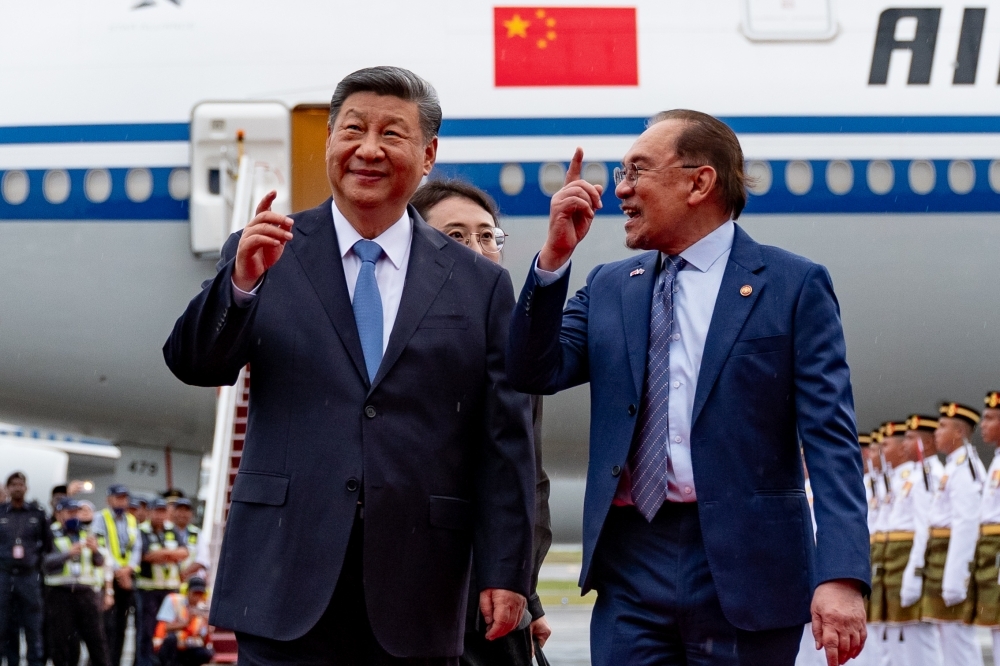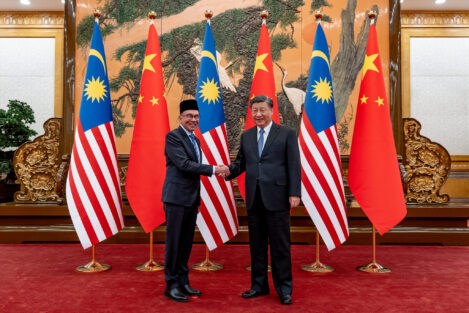Chinese President Xi Jinping's recent state visit to Malaysia from April 15 to 17, 2025, marked a significant milestone in the bilateral relationship between the two nations. Commemorating the 50th anniversary of diplomatic ties, the visit culminated in the signing of 31 Memoranda of Understanding (MoUs) spanning various sectors, signaling a deepening of strategic cooperation amid global economic uncertainties.

Key Outcomes of the Visit
1. Comprehensive Bilateral Agreements
The exchange of 31 MoUs covered a broad spectrum of collaboration, including:
- Trade and Investment: Initiatives to upgrade the "Two Countries, Twin Parks" project, enhancing industrial cooperation between Malaysia and China.
- Emerging Technologies: Joint efforts in artificial intelligence, digital economy, and the establishment of joint laboratories for new materials research.
- Infrastructure Development: Strengthening cooperation in the railway sector, aligning with China's Belt and Road Initiative.
- Cultural and Educational Exchanges: Collaborations between media agencies, translation and publication of classical works, and mutual visa exemptions to promote people-to-people connectivity.
2. Strategic Alignment on Global Issues
Both leaders emphasized the importance of multilateralism and a rules-based international order. They expressed a unified stance against unilateral trade restrictions and advocated for the peaceful resolution of disputes in the South China Sea, reaffirming their commitment to concluding negotiations on a code of conduct with ASEAN by next year.

Implications for the Future
1. Economic Integration and Growth
The agreements are poised to enhance economic integration between Malaysia and China, potentially leading to increased trade volumes, technology transfers, and infrastructure development. The focus on emerging technologies and digital economy aligns with Malaysia's aspirations to become a regional tech hub.
2. Regional Stability and Cooperation
The reaffirmation of commitments to multilateralism and peaceful dispute resolution contributes to regional stability. Malaysia's active role in ASEAN and its strategic partnership with China position it as a key player in fostering regional cooperation.
3. Cultural and Educational Enrichment
The cultural and educational exchanges are expected to deepen mutual understanding and strengthen people-to-people ties, laying a robust foundation for long-term bilateral relations.
Conclusion
President Xi Jinping's visit to Malaysia signifies a strategic deepening of bilateral ties, with comprehensive agreements that span economic, technological, and cultural domains. As both nations navigate the complexities of the global landscape, this partnership is set to usher in a 'new golden era' of cooperation, mutual growth, and regional stability.
Kevin Wu is the editor and focuses on curating stories and articles relevant for the modern-day business owner and corporate leaders in the South-east Asia region. More about Kevin Wu.




